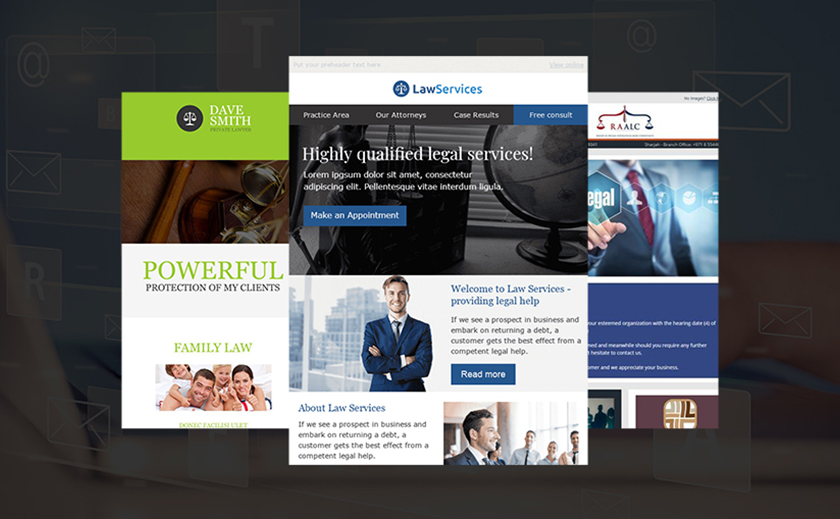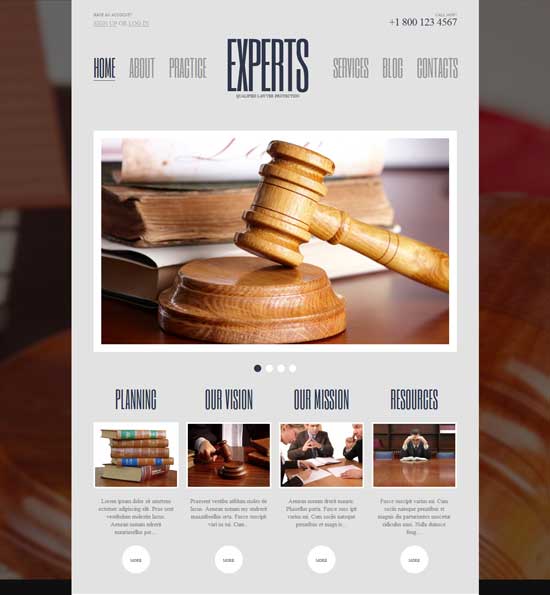Work for yourself | Click here to proceed
Start working today | Join now
Submit your information
Email marketing for lawyers can be a great way to build relationships with clients and potential clients. By sending out timely, relevant information, you can stay top of mind and build trust with your audience. Plus, email is an inexpensive way to reach a large number of people with your message.
Click Here to Start Work from Home Jobs
Email marketing can be a great way for lawyers to connect with potential and current clients. By staying in touch with your contact list, you can build relationships and keep them updated on your latest news and offerings. Here are some tips to get the most out of your email marketing campaign:
1. Keep your list clean and up-to-date. Make sure you have permission from each contact before adding them to your list, and remove any inactive or unresponsive subscribers regularly. This will help improve deliverability and ensure that your messages are going to people who actually want to receive them.
2. Write compelling content. Your emails should be informative and interesting, providing value to the reader. Avoid hard selling or coming across as too promotional – no one wants to feel like they’re being constantly bombarded with ads.
3. Use a professional design template. First impressions count, so make sure your emails look polished and professional. There are many great templates available online that you can customize to match your brand identity.
4 . Time it right . Sending too many emails can quickly become annoying, so space out your communications accordingly.
Once a week or once every two weeks is usually sufficient unless you have time-sensitive information to share (such as an upcoming event). 5 . Use tracking tools .
Most email marketing platforms come with built-in analytics that let you track things like open rates, click-throughs, and unsubscribes .
Email Marketing Strategies for Lawyers
How Do I Market Myself As a Lawyer?
There is no one-size-fits-all answer to this question, as the best way to market yourself as a lawyer depends on your individual circumstances and goals. However, there are some general tips that can help you get started. First, consider what makes you unique as a lawyer.
What are your strengths and weaknesses? What experience do you have that other lawyers might not? Once you have identified your unique selling points, you can begin to craft a marketing strategy that highlights them.
Next, think about your target audience. Who do you want to reach with your marketing efforts? Once you know who your target audience is, you can tailor your messaging and promotional materials accordingly.
Finally, don’t forget the basics of marketing: make sure your website is up-to-date and easy to navigate, use social media to connect with potential clients, and always follow up after initial contact. By following these tips, you can start to market yourself effectively as a lawyer.
Do Lawyers Use Email Tracking?
There are a number of reasons why lawyers use email tracking. First, it allows them to see when an email has been opened, which can be helpful in gauging the interest of the recipient. Additionally, email tracking can provide information about where the recipient is located when they open the email, which can be useful in determining whether they are opening the email at work or at home.
Finally, some email tracking services allow lawyers to track how many times an email has been forwarded, which can give them an indication of how viral their message is.
How Do You Email a Legal Client?
When emailing a legal client, it is important to remember a few key etiquette tips. First, always use a professional and respectful tone. Second, be sure to proofread your email for any grammar or spelling errors.
Third, make sure that you are clear and concise in your email. Fourth, avoid using abbreviations or slang terms. Finally, be aware of the sensitivity of the information you are sharing with the client.
How Do I Get Big Law Clients?
There is no one-size-fits-all answer to this question, as the best way to get big law clients may vary depending on your individual law firm’s strengths, weaknesses, and target market. However, some tips on how to get big law clients may include developing a niche practice area, building a strong referral network, or creating a marketing campaign specifically targeted at large businesses. Developing a niche practice area can be an effective way to get big law clients, as it allows you to focus your marketing efforts and build up expertise in a particular area of law.
For example, if your firm specializes in tax law, you may want to consider targeting large businesses who are likely to have complex tax needs. Building a strong referral network is another key strategy for getting big law clients. By cultivating relationships with other lawyers and professionals who work with large businesses, you can increase your chances of being referred when those businesses need legal assistance.
Finally, creating a marketing campaign specifically targeted at large businesses can also be an effective way to get their attention. This might involve developing targeted advertising or reaching out directly to companies through mailings or personal visits.
Click Here to Start Work from Home Jobs

Credit: legalleadpros.com
Law Firm Email Marketing Template
Email marketing can be a great way for law firms to stay in touch with their clients and referral sources. It can also be a great way to generate new business leads. But crafting an effective email marketing campaign is not always easy.
That’s why we’ve put together this handy Law Firm Email Marketing Template. This template will help you create an email campaign that is both informative and persuasive, while also staying within the bounds of ethics and professionalism. The first step is to make sure you have a good list of email addresses to work with.
If you don’t have one already, start by compiling a list of potential clients and referral sources. You can get these addresses from your firm’s website, online directories, or even through social media platforms like LinkedIn. Once you have a good list of addresses, it’s time to start crafting your message.
Your email should begin with a subject line that catches the reader’s attention and makes them want to open the message. The body of the email should be concise and direct, providing information about your firm or practice area that would be relevant and interesting to the recipient. Be sure to include a call-to-action at the end of the message, such as inviting recipients to visit your website or schedule a consultation.
Sending out mass emails can be time-consuming, so it’s important to make sure each one is personalized before hitting “send.” Addressing recipients by name in the salutation is always a nice touch, and including additional personal details (such as where you went to law school) can help create rapport and build trust. Finally, proofread your email carefully before sending it out – typos or grammatical errors will reflect poorly on your firm!
Mailchimp for Lawyers
If you’re a lawyer, or running a law firm, you know how important it is to stay in touch with your clients and prospects. And what better way to do that than with email? Mailchimp is a great tool for lawyers who want to stay in touch with their clients and cultivate relationships that lead to new business.
With Mailchimp, you can easily create beautiful email newsletters, which help keep your firm top-of-mind with your contacts. What’s more, Mailchimp integrates with many popular legal research tools like Westlaw and LexisNexis, so you can easily add content from those sources into your newsletters. This is a huge time-saver!
Law Firm
If you are in need of legal assistance, you may be wondering if you should hire a law firm. Here is some information that may help you decide if hiring a law firm is the right decision for your situation. A law firm is a business entity formed by one or more lawyers to engage in the practice of law.
The primary service provided by a law firm is to advise clients (individuals or businesses) about their legal rights and responsibilities, and to represent them in civil or criminal cases, business transactions, and other matters in which legal advice and other assistance are sought. There are many different types of law firms, ranging from small sole proprietorships to large multinational corporations. Some firms specialize in particular areas of law, such as criminal defense, personal injury, corporate law, intellectual property, family law, or immigration.
Other firms may provide general legal services. When choosing a law firm to work with, it is important to consider the size of the firm and its specialty area(s). You should also look at the experience of the lawyers at the firm and whether they have handled similar cases to yours in the past.
It is also important to ask about fees – most firms will charge by the hour, but some may offer flat fees or contingency fees (where you only pay if the case is won). Be sure to get all this information up front before making any decisions.
Click Here to Start Work from Home Jobs
Conclusion
Email marketing can be a great way for lawyers to connect with potential clients and build their business. However, it is important to know how to use email marketing effectively in order to get the most out of it. Here are some tips for using email marketing as a lawyer:
1. Use a professional email address. This will help you appear more credible and trustworthy to potential clients. 2. Keep your messages short and concise.
Potential clients are likely to skim emails, so make sure your message is clear and easy to read. 3. Use compelling subject lines. Your subject line should be attention-grabbing and encourage the reader to open your email.
4. Personalize your emails. Addressing the recipient by name shows that you took the time to write a personalized message, which can make them more likely to respond positively to your offer or request. 5. Include a call-to-action (CTA).
Your CTA should be clearly visible and tell the reader what you want them to do next (e.g., schedule a consultation, sign up for your newsletter, etc.).



